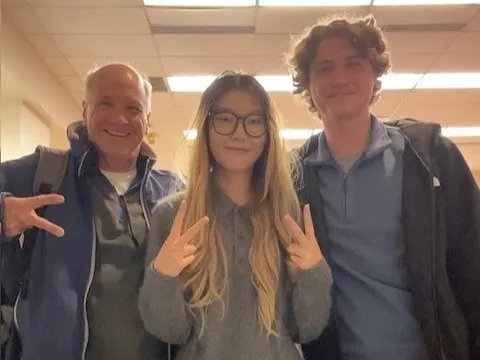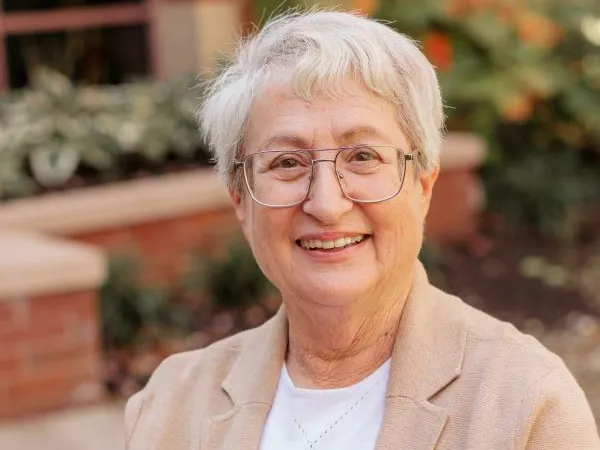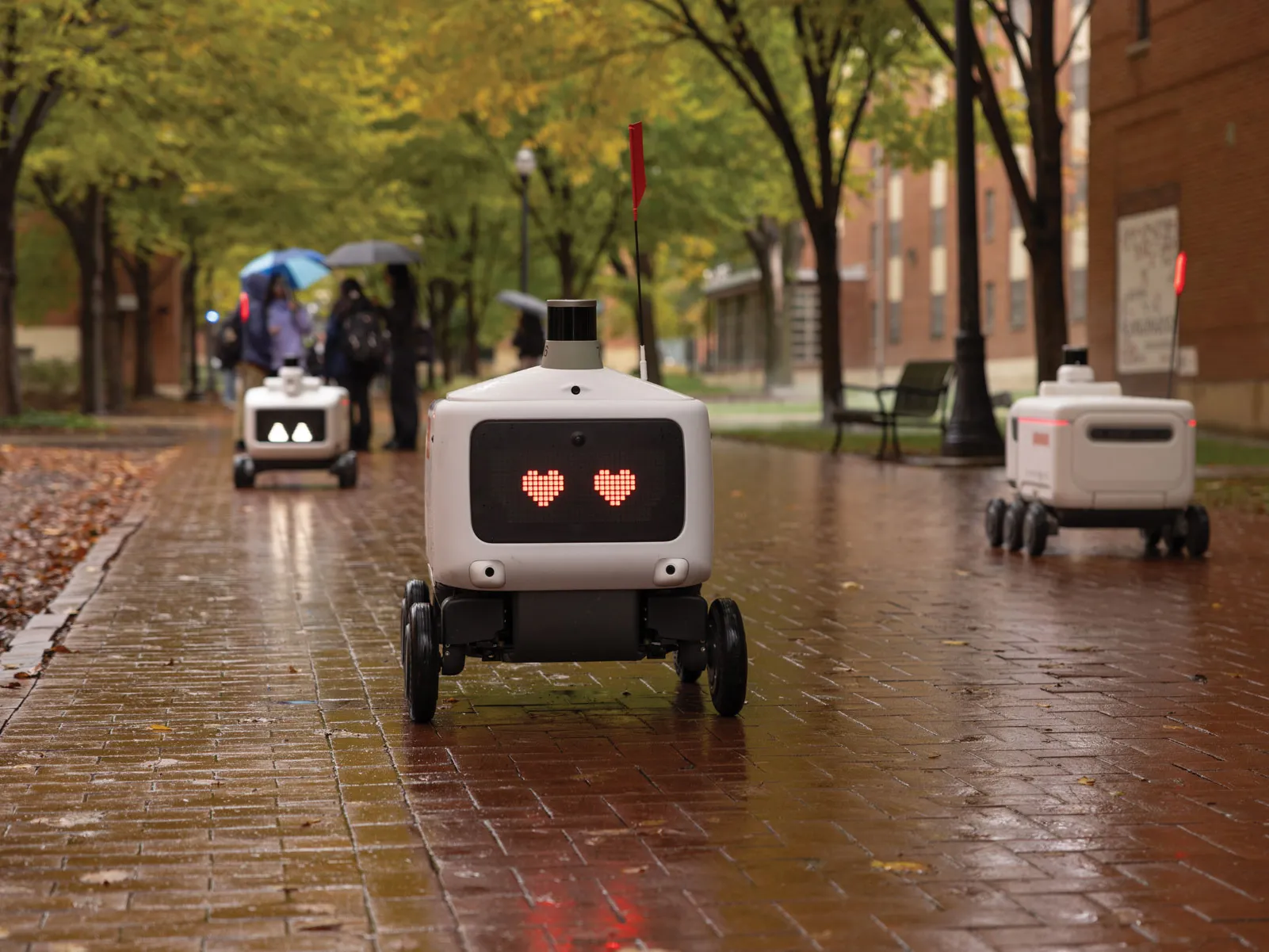Her priority: Helping students become self-advocates
Meet Julie Prince, the 2021 recipient of the Dick Maxwell Award, who helps disabled students reach their full potential.
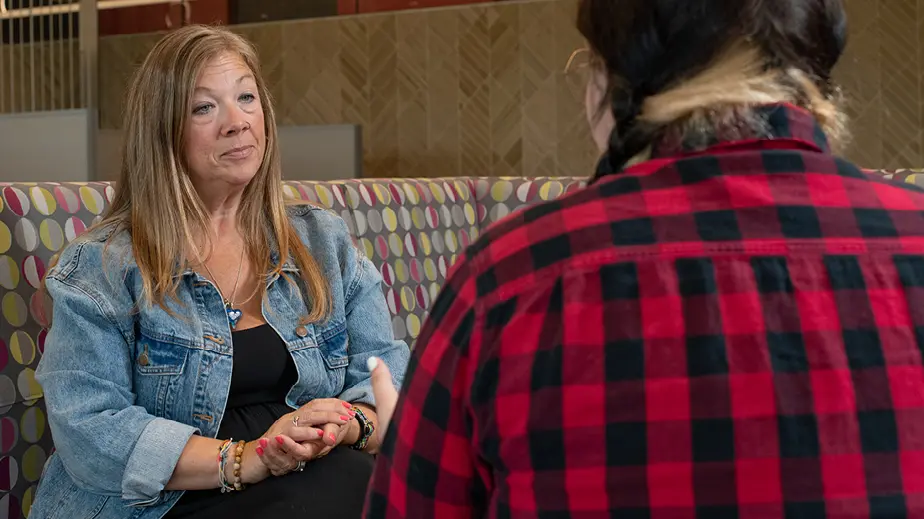
Disability services coordinator Julie Prince meets with a student at Ohio State Marion. (Photo by Jo McCulty ’84, ’94 MA)
For imbuing her work with compassion and connection, Julie Prince is the 2021 recipient of the Dick Maxwell Award, which Ohio State presents annually to a staff or faculty member who has significantly improved the quality of the higher educational experience for a student with a disability. “I have the utmost confidence that when I refer students to Julie and her office, they will receive excellent, compassionate and caring service from beginning to end,” a colleague wrote in a nominating letter. “I see the difference constantly in the interventions she has in their lives.”
Is this a job you saw yourself in when you were in school?
When I started my college career back in the ’80s, I was majoring in special education. But then when I came back to school as a nontraditional student, I thought I’d go into counseling or counseling psychology and realized that’s not what I wanted to do. I knew that working with this population had brought me joy in the past. OK, here I am back to the same spot where I started, just working with individuals at a higher age level.
How do you help students reach their full potential?
Having the opportunity to reach full potential academically is important, and providing access to that is part of my responsibility. But full potential as a human being and having the ability to participate in regular activities — this kind of active advocacy — is what I consider to be the most important part of my job. Helping students become self-advocates is what we work to do. We want them to reach that potential so they’re later able to say, “Hey, I have these needs, and we need to make sure that this is addressed.”
What did receiving this award mean to you?
I was thrilled. It’s been a hard year. A lot of the students I work with have said depression and anxiety had been concerns for them leading up to the pandemic. When the pandemic hit, it was a real challenge for them to stay focused, to stay on track and to not shut down. So there were a lot of check-ins. What’s going on? Have you been able to make it to class? It’s been hard for everyone, so being recognized with this award particularly during this really difficult year, it really — I’m not exaggerating, I was in tears.
About the award
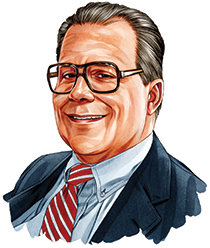
The legacy of Dick Maxwell ’69 lives on in the award named for him. Maxwell became a quadriplegic in 1963 when he experienced a spinal cord injury in an intramural football game. Afterward, he dedicated his career to improving access to campus and housing for people with physical disabilities.
Maxwell advocated for disabled students and building accessibility as assistant director in Ohio State’s Office of Disability Services. In addition, he was one of the founders of Creative Living, a nonprofit organization that provides affordable, independent housing near the Columbus campus for people who have severe physical disabilities.
“One of his areas of focus was campus accessibility and transportation to help individuals with disabilities get to their classes,” says Kathryn Maxwell, his wife of 25 years and a senior lecturer in the university’s School of Health and Rehabilitation Sciences. “He worked with students to realize their own capabilities so that they could be their own self-advocate in gaining independence and autonomy.”
The Ohio State Office for Disabilities Services (now Student Life and Disability Services) created the Dick Maxwell Award upon his retirement in 1995.
